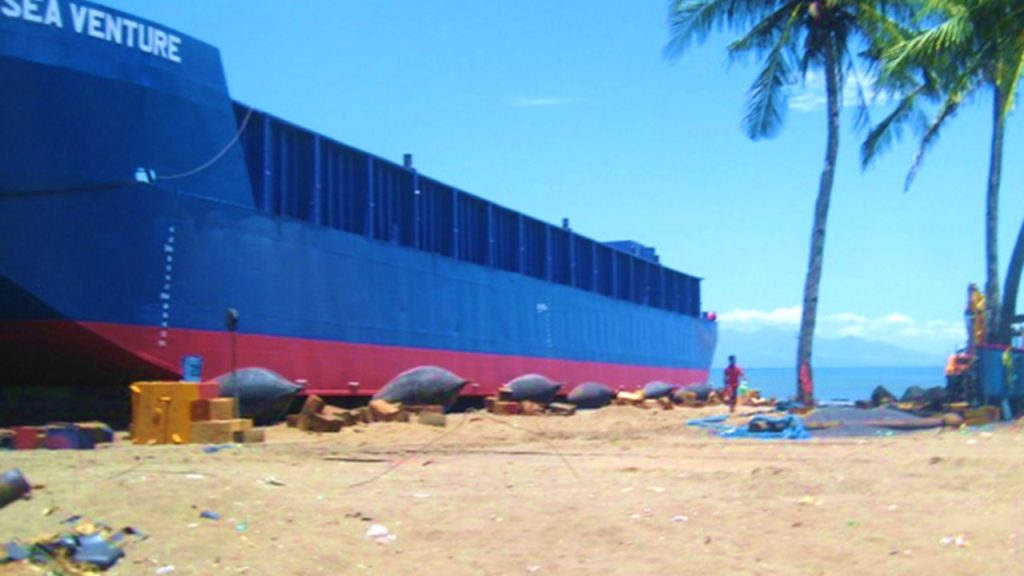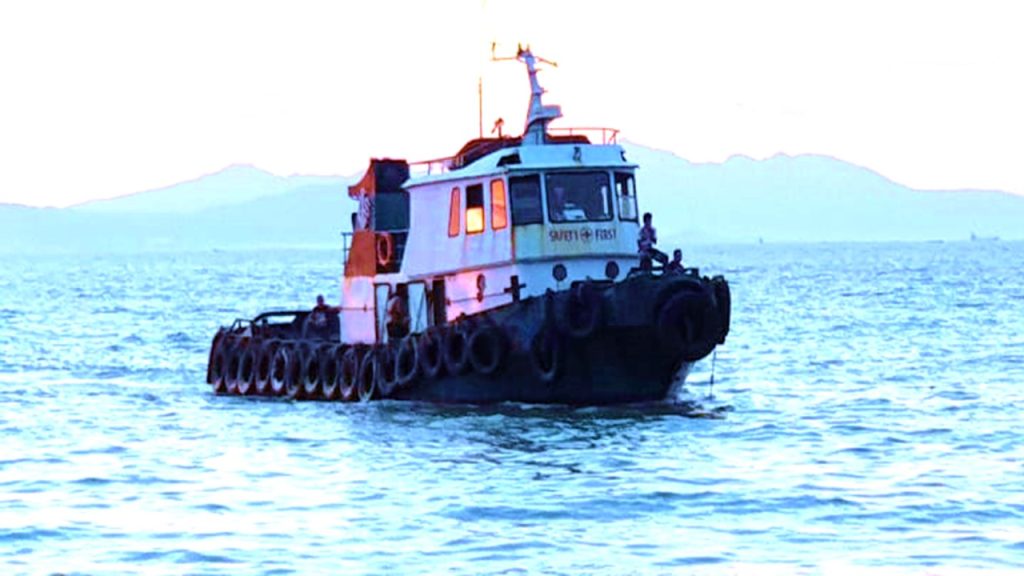With a rich maritime history and an archipelago, the Philippines has long been recognized as a global hub for shipbuilding. However, in recent years, the country’s shipbuilding industry has faced challenges stemming from rusting vessels and outdated technologies. Yet, amidst these setbacks, a new era of resilience is emerging as the Philippines embraces innovative steel fabrications for shipbuilding. From advanced welding techniques to state-of-the-art materials, this article explores how the nation is revitalizing its shipbuilding sector and positioning itself as a formidable force in the global market.
Click here to view our shipbuilding capabilities.
The History Of Steel Fabrications For Shipbuilding In The Philippines
The history of steel fabrications for shipbuilding in the Philippines is a fascinating tale of resilience and innovation. It all began in the late 16th century, when Spain, the colonizer of the archipelago, established shipyards and started building wooden vessels. However, it was not until American colonization in the early 20th century that steel fabrication for shipbuilding truly took off.
The introduction of modern technology and machinery from America sparked a revolution in shipbuilding methods. The Filipino craftsmen quickly adapted to these new techniques and began constructing ships using steel instead of wood. This marked a significant shift in the industry as it allowed for larger and sturdier vessels to be built, capable of navigating longer distances with increased cargo capacity.
Over time, as more foreign investments poured into the country’s shipbuilding sector, Filipino workers gained valuable experience and honed their skills under international standards. This drove further growth and development in local steel fabrications for shipbuilding. Today, Filipino shipbuilders are recognized globally for their high-quality craftsmanship and cost-effective solutions.
Moreover, with its strategic location between major shipping routes in Southeast Asia, coupled with favorable government policies promoting investment incentives, the Philippines has become an attractive destination for international companies looking to build or repair ships at competitive prices without compromising on quality.
While wood may have been the material of choice during Spanish rule, it was American influence that propelled steel fabrications for shipbuilding forward in the Philippines.

Importance Of Steel Fabrications For Shipbuilding In The Philippines
Steel fabrications play a crucial role in shipbuilding in the Philippines. The country’s booming shipbuilding industry heavily relies on steel fabrications to construct durable and seaworthy vessels. Steel offers exceptional strength and durability, making it the ideal material for maritime applications. It can withstand extreme weather conditions, corrosion from saltwater, and heavy cargo loads. Moreover, steel fabrication techniques allow for precise customization and intricate designs, ensuring that ships are built to meet specific requirements.
One key aspect of steel fabrications in shipbuilding in Metro Manila, Cavite, Navotas, Subic Bay, Cebu, and Batangas is their contribution to safety. Ships need to navigate rough seas and unpredictable weather conditions, making safety a top priority. Steel materials used in ship construction undergo rigorous quality control measures to ensure they meet international standards for strength and stability. This helps ensure that ships remain sturdy during voyages, reducing the risk of accidents or structural failures.
Additionally, steel fabrications also enhance the overall efficiency of ships. By using lightweight yet durable steel components in various parts of the vessel’s structure, such as hulls and decks, ships can achieve improved fuel efficiency due to reduced weight burdens. This not only benefits the environment but also translates into cost savings for ship operators by minimizing fuel consumption.
Steel fabrications are integral to the shipbuilding industry in the Philippines. From providing robustness and safety to enhancing efficiency, steel plays a vital role in constructing reliable vessels capable of withstanding challenging maritime environments.
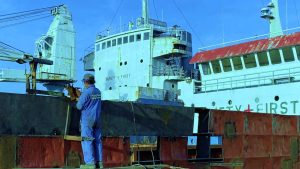
Revival And Modernization Efforts: Government Initiatives And Partnerships
In recent years, the Philippines has embarked on a remarkable journey of revival and modernization in its steel fabrications for shipbuilding. This has been made possible through strategic government initiatives and partnerships with both local and international entities. The government’s commitment to revitalizing this sector is evident in the various policies put in place, such as tax incentives and streamlined regulatory processes, which have attracted new investments and stimulated growth.
One noteworthy partnership that has played a significant role in this revival is the collaboration between the Philippine government and South Korean shipbuilders. Through joint ventures and technology transfers, South Korean expertise has been shared with local companies, enabling them to improve their manufacturing processes and enhance their capabilities. This partnership has not only resulted in higher-quality products but has also positioned the Philippines as a competitive player in the global shipbuilding market.
Furthermore, efforts to modernize the steel fabrication industry have also been driven by innovation in research and development (R&D). The government’s support for R&D initiatives has led to the adoption of advanced technologies such as robotics, automation, and digital systems within local shipyards. These advancements have not only increased efficiency but have also improved safety standards for workers.
Overall, through proactive government initiatives and strategic partnerships, the Philippines’ steel fabrications for shipbuilding are experiencing a remarkable revival accompanied by efforts toward rapid modernization. These endeavors are laying a solid foundation for sustainable growth while positioning the country as an emerging leader in this critical sector.
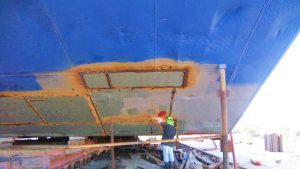
Advantages Of Philippines’ Steel Fabrications For Shipbuilding
One of the biggest advantages of the Philippines’ steel fabrications for shipbuilding is their competitive cost. The country has a well-established steel industry, with several major steel manufacturers producing high-quality materials at affordable prices. This allows Filipino shipbuilders in Cavite or Metro Manila to offer their products and services at a lower price compared to other countries, making them more attractive to international customers.
Another advantage is the skilled workforce in the Philippines that specializes in steel fabrication for shipbuilding. Filipino workers are known for their craftsmanship and attention to detail, which are crucial elements in shipbuilding. They undergo rigorous training and certifications to ensure that they meet international standards and can produce top-notch steel fabrications. This level of expertise sets the Philippines apart from other emerging economies in terms of its shipbuilding capabilities.
Moreover, the geographical location of the Philippines provides an added advantage for the steel fabrications used in shipbuilding. The country is strategically located near major shipping routes, making it easier and more cost-effective to transport raw materials and finished products between global markets. This proximity also allows for better collaboration with international partners, resulting in efficient supply chains and faster project completion times.
In conclusion, there are several key advantages to using Philippine steel fabrications for shipbuilding, such as competitive costs, a skilled workforce specializing in quality craftsmanship, and strategic geographical location. Combined with a strong commitment to meeting international standards and regulations, the Philippines has positioned itself as a reliable supplier of high-quality fabricated steel products for use in various sectors, including shipbuilding.

Innovations In Steel Fabrications For Shipbuilding
One of the most exciting and transformative innovations in steel fabrications for shipbuilding is the use of advanced alloys. Traditional shipbuilding materials like mild steel are being replaced with high-strength, lightweight alloys that offer improved durability and performance. These new alloys are not only stronger but also more resistant to corrosion, reducing maintenance costs and increasing the lifespan of ships. Additionally, their lighter weight allows for greater fuel efficiency, making them a more environmentally friendly option.
Another groundbreaking development in steel fabrication for shipbuilding is the use of automation and robotics. Gone are the days when every piece had to be cut and shaped by hand – now, computerized machinery can perform these tasks with unparalleled precision and efficiency. Automated welding systems have also revolutionized ship construction by ensuring consistent weld quality throughout the entire vessel, enhancing structural integrity and safety. With robotics taking over repetitive tasks, skilled workers can focus on more complex operations, leading to faster production times without compromising on quality or safety standards.
These innovative advancements in steel fabrications for shipbuilding are transforming an industry known for its reliance on manual labor into one that is embracing automation and cutting-edge materials science. By adopting state-of-the-art alloys and leveraging automation technologies, shipbuilders can create vessels that are stronger, safer, more efficient to operate, and better suited to withstand harsh marine environments. The Philippines’ steel fabrication sector is at the forefront of these innovations – a testament to its commitment to excellence in maritime technology.
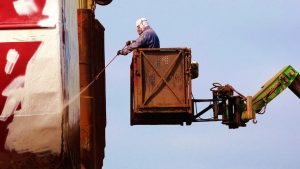
The Role Of Local Technology And Expertise In Steel Fabrications For Shipbuilding
The role of local technology and expertise in steel fabrications for shipbuilding cannot be overstated. The Philippines, with its rich history in the maritime industry, has been able to tap into its pool of skilled labor and advanced technology to become a key player in the production of steel structures for ships. Filipino shipyards in Cavite, Subic Bay, Cebu, Batangas, and Manila have significantly invested in state-of-the-art machinery and equipment, which has allowed them to meet international standards and compete globally.
Moreover, the availability of skilled workers in the Philippines has also contributed to its success in steel fabrication for shipbuilding. The country is home to a large number of highly skilled welders, fitters, and engineers who possess the necessary expertise required for manufacturing complex steel structures. This local talent pool not only ensures that projects are completed efficiently but also guarantees high-quality craftsmanship.
By leveraging their local technology and expertise, Philippine shipyards have not only expanded their capabilities but have also been able to offer cost-competitive solutions compared to other countries. This can be attributed to several factors, including lower labor costs and efficient production processes. As a result, international clients are increasingly turning towards these Filipino fabricators, as they provide reliable solutions without compromising on quality or timeliness.
The role of local technology and expertise in steel fabrications for shipbuilding is pivotal when it comes to meeting global demand while maintaining competitiveness. The Philippines’ strong foundation in this industry allows it to offer world-class products backed by years of experience and innovation.
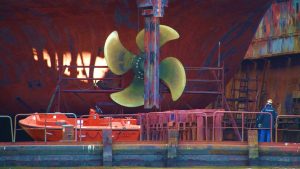
Economic Impact And Opportunities For Growth of Steel Fabrications For Shipbuilding
Steel fabrications for shipbuilding have a significant economic impact and offer opportunities for growth in the Philippines. As one of the largest archipelagos in the world, with over 7,000 islands, shipbuilding is a crucial industry for transportation and commerce. The demand for steel ship components is driven by both domestic needs and international markets.
The economic impact of steel fabrications for shipbuilding goes beyond the direct employment generated by this sector. Shipyard activities also create indirect jobs in related industries such as engineering services, manufacturing companies providing equipment and machinery, logistics providers, and marine support services. Additionally, investments in modernizing shipyards to meet global standards not only enhance their capacity but also spur innovation and facilitate technology transfers. This contributes to overall economic growth by attracting investors interested in collaborating with local shipbuilders.
Advancements in technology and sustainable practices further fuel opportunities for growth within the steel fabrication sector of shipbuilding. Modern ships demand lighter yet more robust materials for improved fuel efficiency and reduced emissions – attributes that can be achieved through precision-engineered steel fabrications. In meeting these demands, Filipino manufacturers can focus on research and development to produce innovative materials that will attract international clients seeking cutting-edge solutions. Moreover, integrating sustainability into their operations will not only contribute to protecting the environment but also appeal to environmentally conscious customers looking to support eco-friendly choices when it comes to their vessels’ construction.

Challenges Faced By The Steel Fabrications For Shipbuilding Industry: Competition, Skills Gap, And Infrastructure
The steel fabrications for shipbuilding in the Philippines face a multitude of challenges that need to be addressed in order to promote growth and resilience. One of the major challenges is intense competition from other countries, particularly those with lower labor costs. This puts pressure on Filipino steel fabricators to offer competitive pricing without sacrificing quality. To overcome this, it is crucial for these Filipino fabricators to innovate and enhance their technological capabilities constantly.
Another challenge faced by the shipbuilding industry is the skills gap among local workers. While there are plenty of job opportunities available in this sector, there is a shortage of skilled welders, fitters, and naval architects. This scarcity hampers productivity and can also lead to safety issues if inexperienced workers are not properly trained. Therefore, it is imperative for industry players, government bodies, and educational institutions to collaborate closely in providing specialized training programs and vocational courses that equip individuals with the necessary skills.
Additionally, inadequate infrastructure poses significant challenges for steel fabrications utilized in shipbuilding projects. Limited access roads leading to shipyards hinder efficient transportation of materials and equipment. Insufficient power supply can result in delays or interruptions during production processes. Moreover, outdated facilities lack the modern technology and equipment required for efficient fabrication work. It becomes vital for both public-private partnerships and government initiatives aiming at improving infrastructure development within maritime clusters.
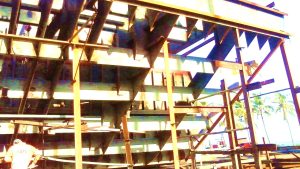
Sustainability And Environmental Considerations In Steel Fabrications For Shipbuilding
Sustainability and environmental considerations are becoming increasingly important in steel fabrications for shipbuilding. As the global maritime industry strives to reduce its carbon footprint and mitigate climate change, shipbuilders in the Philippines are adopting sustainable practices and technologies in their fabrication processes. For example, many companies are investing in advanced recycling methods to minimize waste and promote circularity. Additionally, there is a growing focus on utilizing eco-friendly materials such as low-carbon steel or alternative composites that have a smaller environmental impact.
Moreover, efficient energy consumption has become a priority for shipbuilders to enhance sustainability. Through innovative design techniques, such as optimizing hull shapes and incorporating energy-saving systems like renewable propulsion technology, ships can achieve significant fuel efficiency improvements. This not only reduces emissions but also enhances the economic viability of vessels by minimizing operational costs. Notably, the incorporation of improved coatings on ships’ surfaces can also contribute to sustainability efforts by providing superior corrosion resistance and reducing maintenance needs while extending vessel lifespan.
Ultimately, while steel fabrications remain vital for shipbuilding due to their strength and durability attributes, embracing sustainability becomes paramount for both industry progress and environmentally conscious decision-making. By prioritizing sustainability throughout the fabrication process—from materials sourcing to energy consumption—Philippines’ steel fabricators can significantly contribute towards building a more resilient maritime future that harmonizes economic growth with environmental preservation.
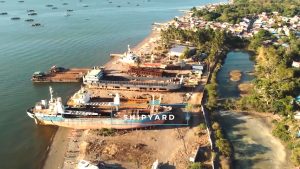
Are You Looking For The Best Steel Fabrication Company For Your Shipbuilding Plans?
If you’re in search of the best steel fabrication company for your shipbuilding plans, look no further than Amaya Dockyard & Marine Services Inc. (ADMSI). With a strong commitment to quality and an impressive track record, Admsi is the go-to choice for cost-effective and reliable steel fabrications in Cavite, Philippines. What sets us apart from our competitors is our dedication to innovation and customer satisfaction.
- Email us: info@amayadockyard.com
- Call our 24-hour hotline: +63 917 633 0479
- Viber: +63 917 633 0479
- WhatsApp: +63 917 633 0479
- Facebook Messenger: Click here
- Click here to inquire
ADMSI understands that shipbuilding requires precise engineering and attention to detail. We have a team of highly skilled Filipino engineers and maritime professionals who are experts in their field, ensuring that every project is executed with precision and excellence. Whether it’s constructing hulls or manufacturing structural parts, ADMSI utilizes state-of-the-art technology combined with traditional craftsmanship to deliver unmatched results.
One significant advantage of choosing ADMSI for your shipbuilding needs in the Philippines is our cost-effective solutions. In today’s competitive market, budget constraints can often hinder progress. However, with ADMSI‘s expertise in optimizing production processes and materials utilization without compromising on quality, clients can save both time and money while still receiving top-notch services.
So if you’re planning a shipbuilding project and need the best steel fabrication company in the Philippines, trust Amaya Dockyard & Marine Services Inc. to turn your vision into reality. With their exceptional skills, commitment to quality, and cost-effectiveness, they are sure to exceed all expectations. Contact them today and witness true excellence in steel fabrication for shipbuilding projects in the Philippines!
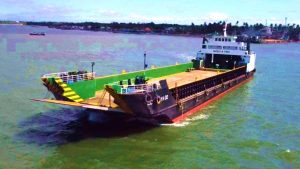
Takeaway: The Promising Future Of Philippines’ Steel Fabrications For Shipbuilding
In conclusion, the future of the Philippines’ steel fabrications for shipbuilding looks incredibly promising. The industry has proven its resiliency and adaptability in the face of challenges, emerging as a major player in the global market. With an abundance of skilled workers and advanced facilities, Filipino fabricators are well-positioned to meet the growing demand for high-quality steel structures in shipbuilding.
One key factor that sets the Philippines’ steel fabrications apart is their competitiveness in terms of cost-efficiency. The lower labor costs compared to other shipbuilding countries allow Filipino fabricators to offer competitive pricing without compromising on quality. This advantage has attracted major international companies to choose the Philippines as their preferred destination for outsourcing steel fabrication work.
Moreover, Filipino fabricators have also embraced innovation and technological advancements, further enhancing their capabilities. From using advanced modeling software for precise design specifications to implementing automated welding processes for improved efficiency, these advancements have enabled them to deliver top-notch products while reducing production time and costs.
With all these factors working in favor of the Philippines’ steel fabrication industry for shipbuilding, it is only natural to expect a bright future ahead. As demand continues to rise and new opportunities emerge within the global maritime sector, we can expect Filipino fabricators to play an increasingly vital role in shaping the world’s naval landscape.
Boost efficiency and reliability in shipbuilding with high-grade steel fabrications from the Philippines. Explore our range of innovative solutions today with ADMSI.

